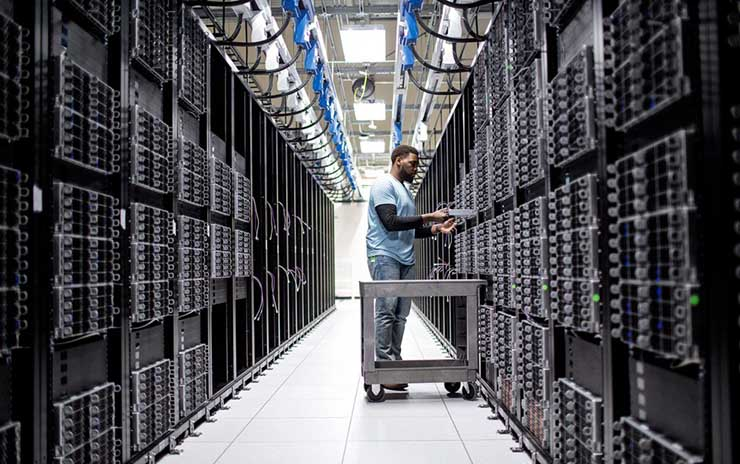
The pharmaceutical sector is anticipated to be worth $1170 billion in 2021, according to the Business Research Company, which will rank among the world’s largest and fastest-growing industries.
The pharmaceutical business is anticipated to be worth $1170 billion in 2021, with a compound annual growth rate of 5.8 percent, according to the Business Research Company 2018. The pharmaceutical industry is growing rapidly worldwide.
Temperature-sensitive shipping and asset tracking solutions are gaining in popularity as a result of the stringent standards and compliance procedures that have been put in place. The profit turnover of the pharmaceutical sector is enormous, but the time and financial expenditure involved in developing new pharmaceuticals are also significant.
The average drug, according to the Berkshire Hathaway company, takes anywhere from six to ten years to research and develop, and then must be approved by the FDA in the United States or the TGA in Australia. Furthermore, according to the data from the Berkshire Hathaway Company, one medicine’s design costs pharmaceutical firms about USD $2.5 billion to bring to the market.
Because of these changes, the demand for temperature-sensitive tracking in the pharmaceutical sector is expected to increase substantially in the next years. There are several causes for this development. First, as previously stated, regulatory standards and rules within the pharmaceutical industry are becoming more strict. To assure that the drugs are safe and effective, manufacturers must follow Good Manufacturing Practices (GMPs). These practices include guidelines for the storage, handling, and shipment of pharmaceutical products. One aspect of these guidelines is the requirement to maintain a product’s temperature within a certain range during transport and storage.
Within their supply chain, the pharmaceutical business must keep an eye on important issues such as product handling and storage in order to maintain operational efficiency.
As the industry is shifting to just-in-time inventory models and globalized production, the need for real-time asset tracking and supply chain visibility is becoming more important than ever before. In addition, with an increase in focus on patient safety and data accuracy, these companies are now feeling pressure to track and manage their products throughout the entire product life, Pharmaceuticals must be maintained at temperatures of no more than 2 to 8 degrees Celsius, as stated by Mach1 Global services. A modest variation in temperature might jeopardize the efficacy of the medication. Pharmaceutical companies must make sure that accurate monitoring and traceability are maintained throughout the supply chain.
A versatile wireless data logger can be used to monitor temperature and humidity in server rooms, cold storage rooms, refrigerators, and temperature-controlled warehouses. The device’s wireless data logging capability reduces the labor of manually monitoring and collecting data from sensitive areas enabling it to be one of the best temperature data logger on the market.
Therefore, if parameters are crossed, companies can be alerted and rectify the issue more efficiently. If temperature and humidity parameters are violated deterioration may occur in products. This is particularly relevant for the pharmaceutical industry where many medications are temperature sensitive.
The pharmaceutical sector is a worldwide market, with major firms exporting their goods to other countries. Theft, loss, and misplacement of items are all possible during the regular movement of shipments.
According to the Business Research Company, managing supply chain problems in the transportation process costs USD $25 million every year for the pharmaceutical and health sector. Assisted by asset tracking solutions that provide higher traceability throughout the supply chain, companies will be able to develop greater trust among themselves, their suppliers, and manufacturers.
End-to-end visibility and transparency add to the ability to keep track of consignments at all times, assuring that they have been handled and stored correctly. Because high-value drugs are transported across borders on a regular basis, end-to-end insight is more essential than ever before for the pharmaceutical business.
An IoT-enabled asset tracker, for example, monitors the temperature, location, shock, and light in near real-time. This increased supply chain visibility enables businesses to address any challenges that arise in the logistics process. For the pharmaceutical industry, it is important to track and monitor the location of assets and other vital conditions.
The ‘Link Ideas & Innovations’ solution for asset tracking uses near-real-time sensors to provide transparency throughout the supply chain. The data acquired is near real-time, allowing for comprehensive insight throughout the process.
Alexia is the author at Research Snipers covering all technology news including Google, Apple, Android, Xiaomi, Huawei, Samsung News, and More.
View Comments
Fantasic article, thank you
Temperature monitoring is becoming more vital is retaining the prospect of perishable goods. data loggers is the natural evolution.